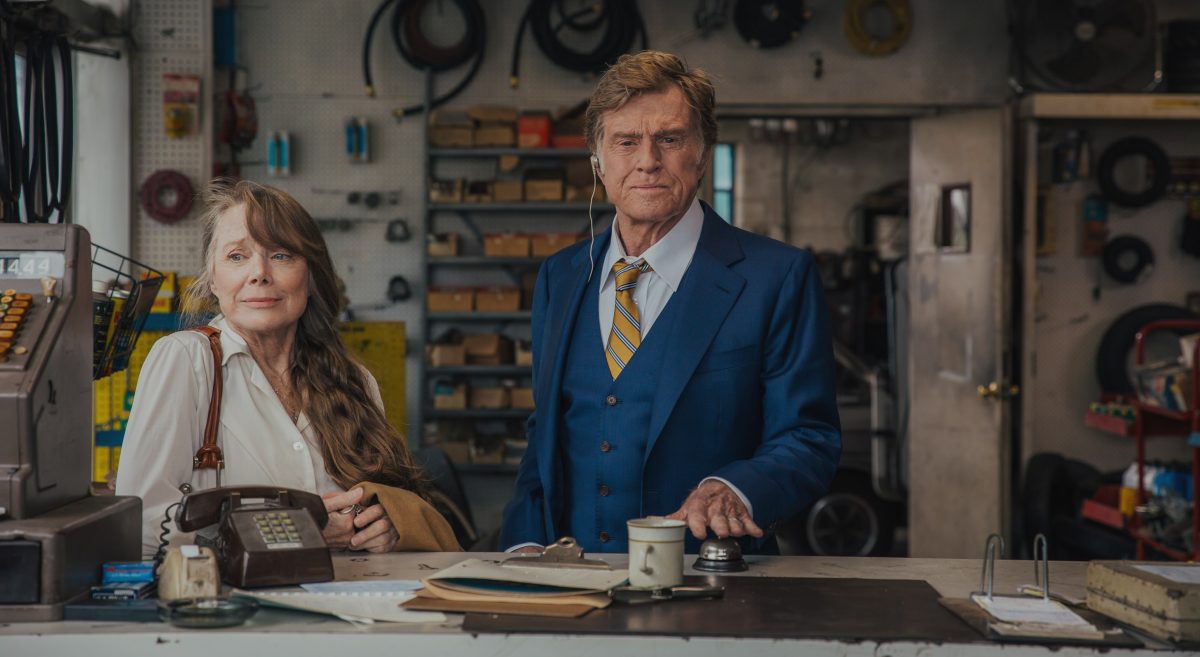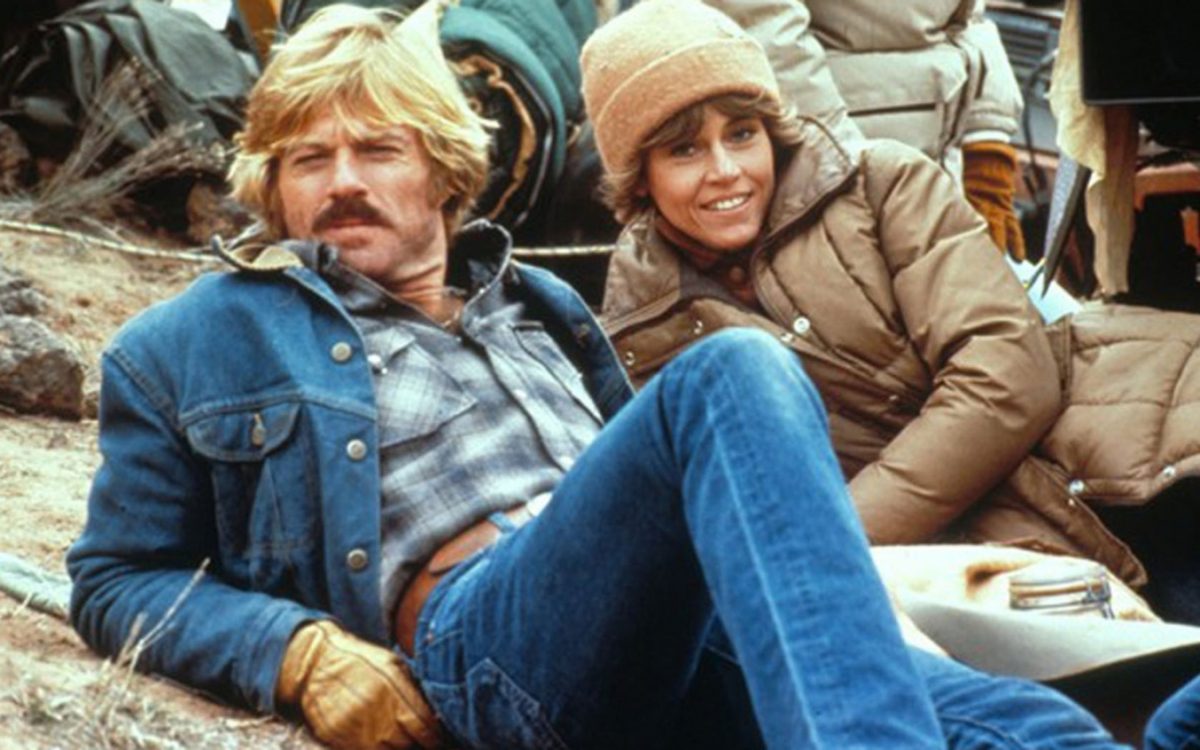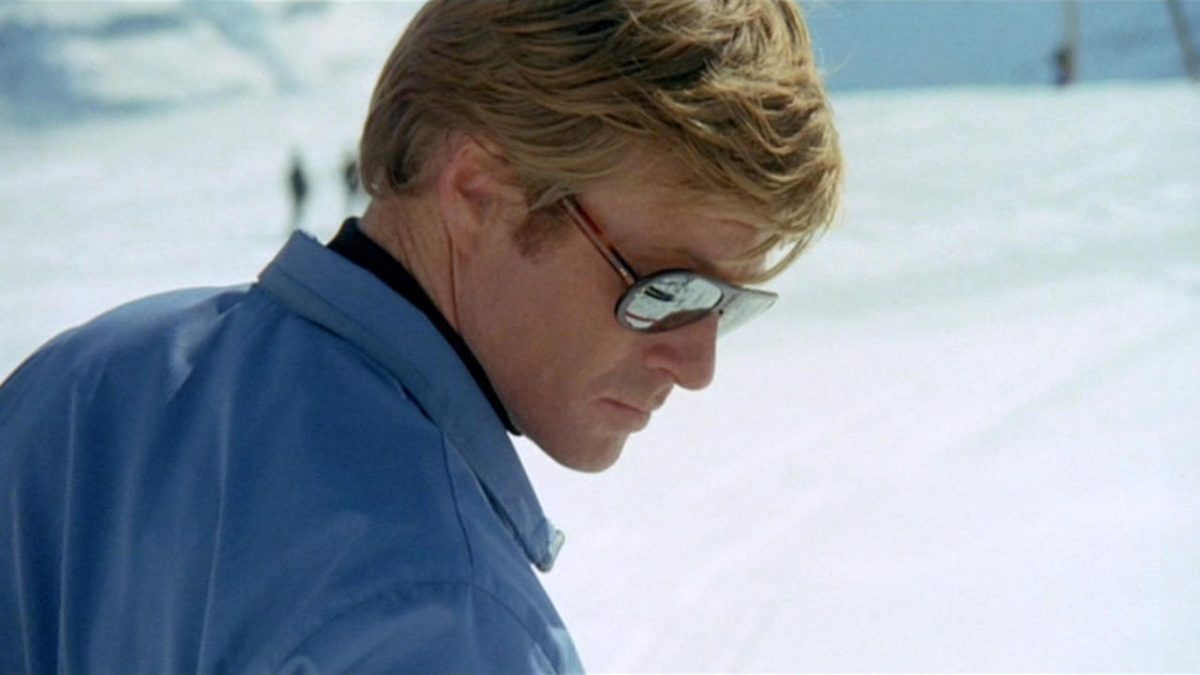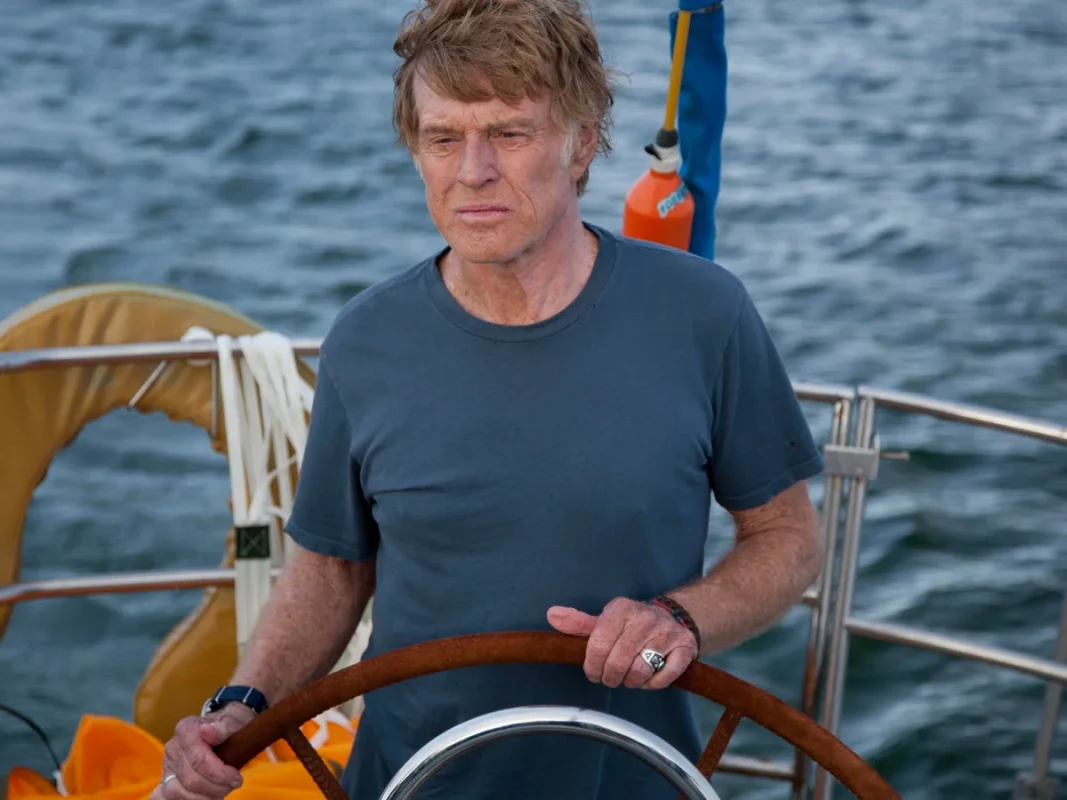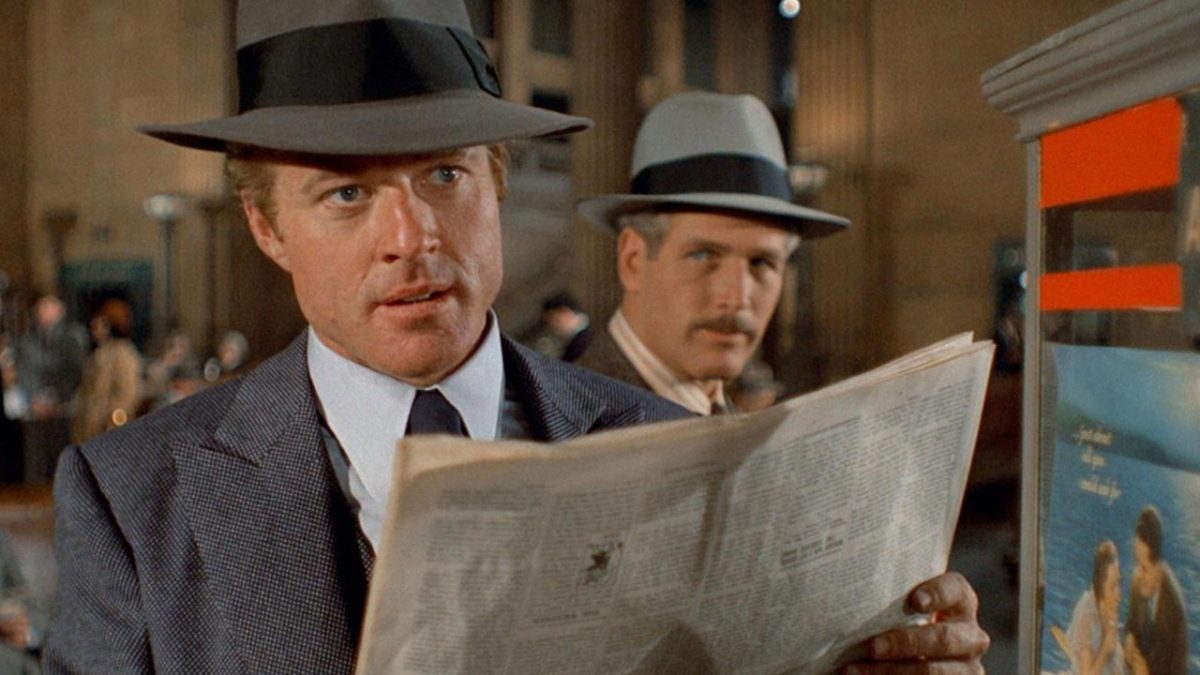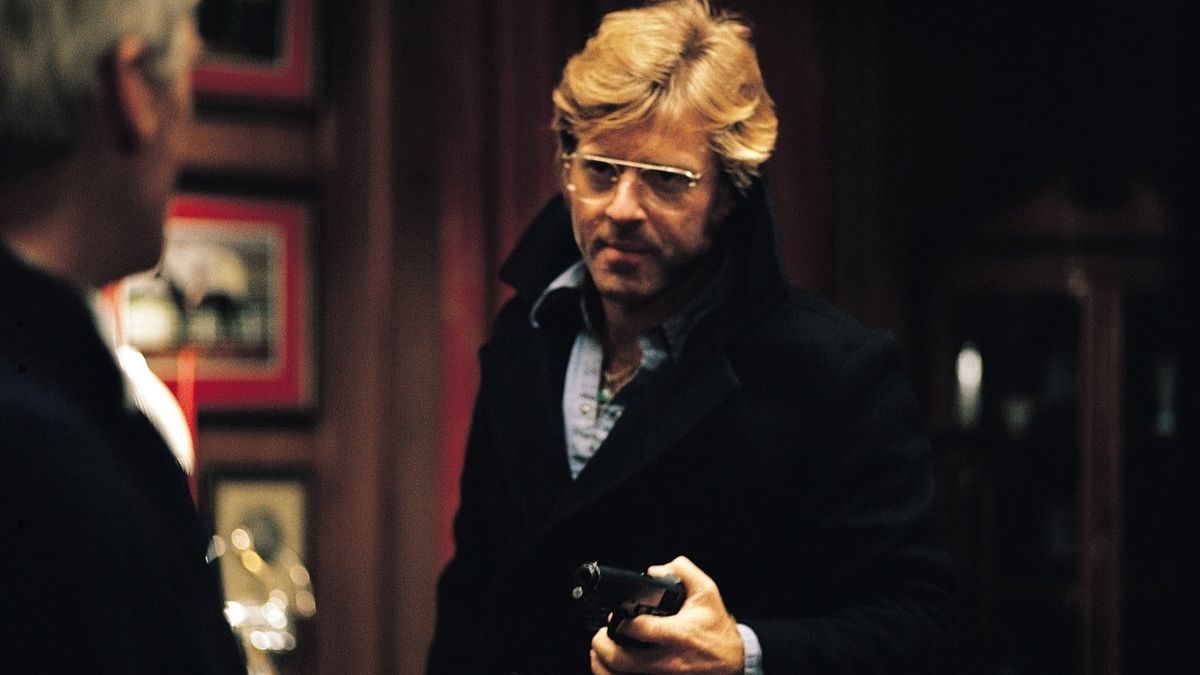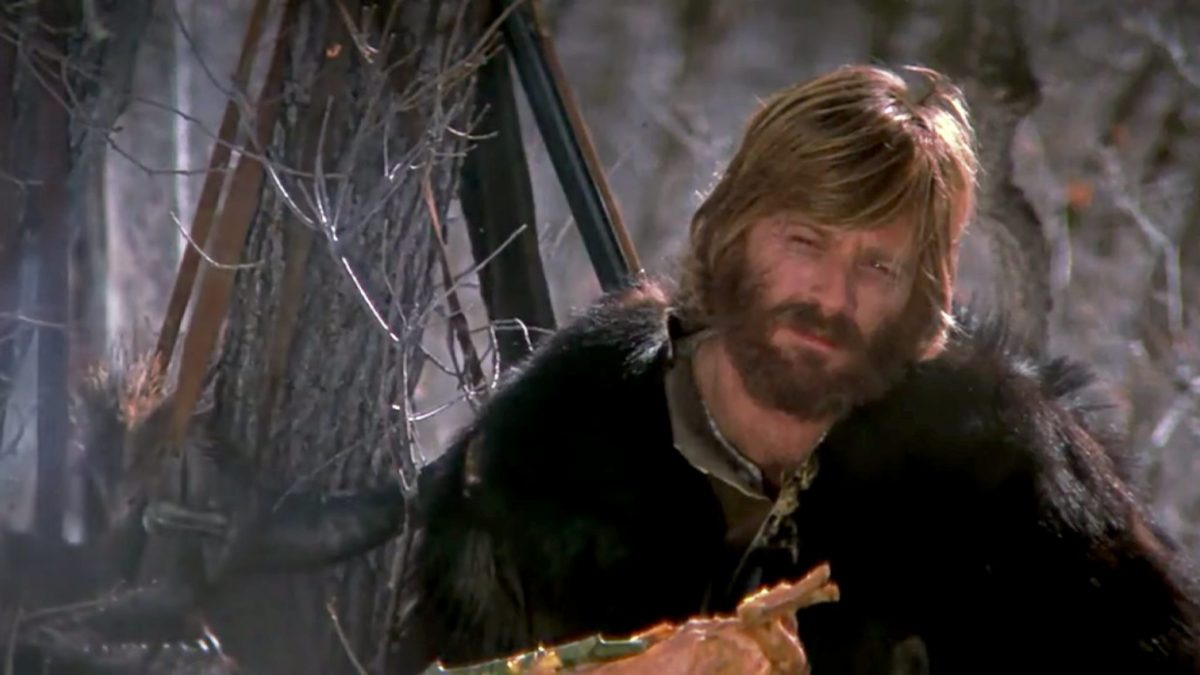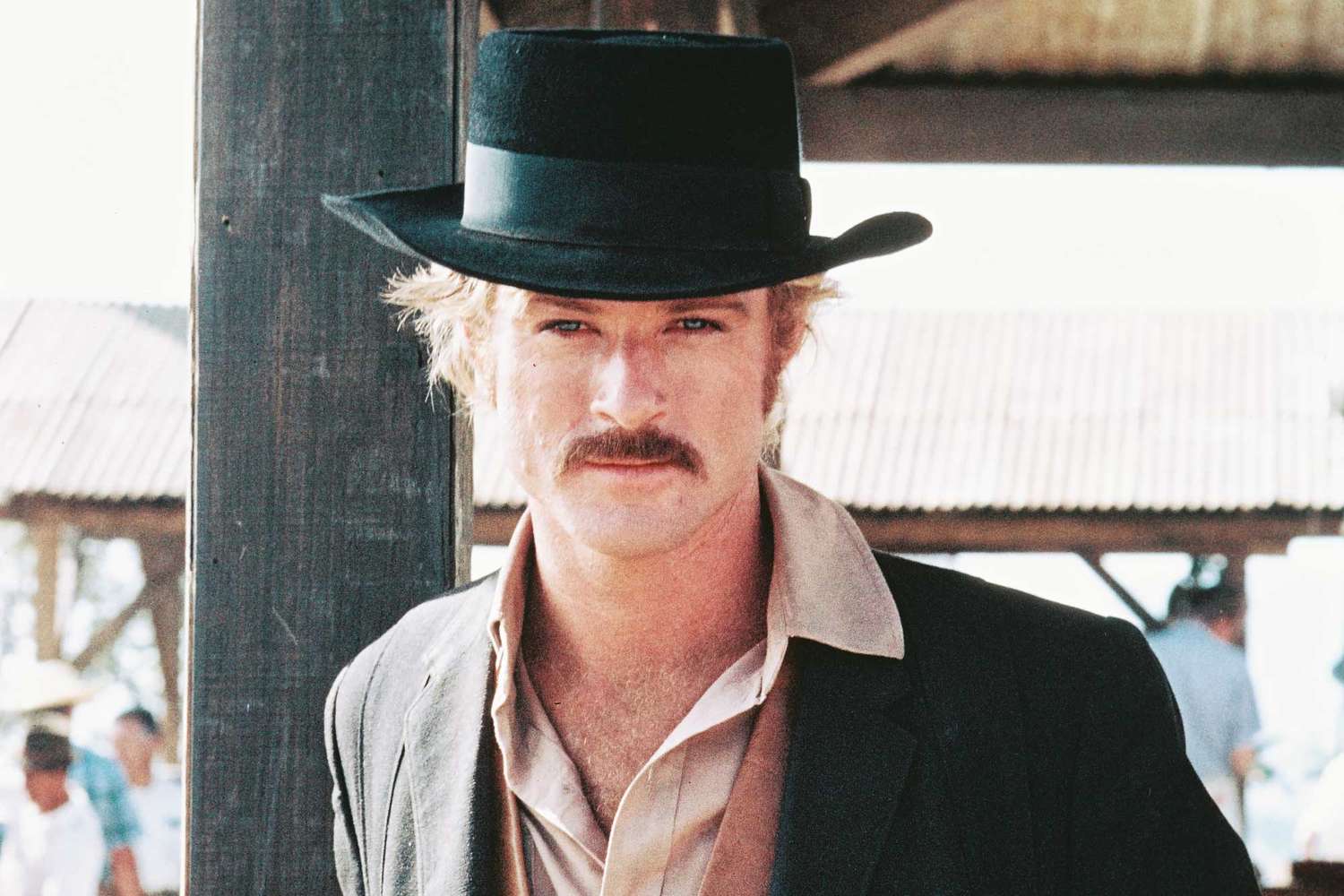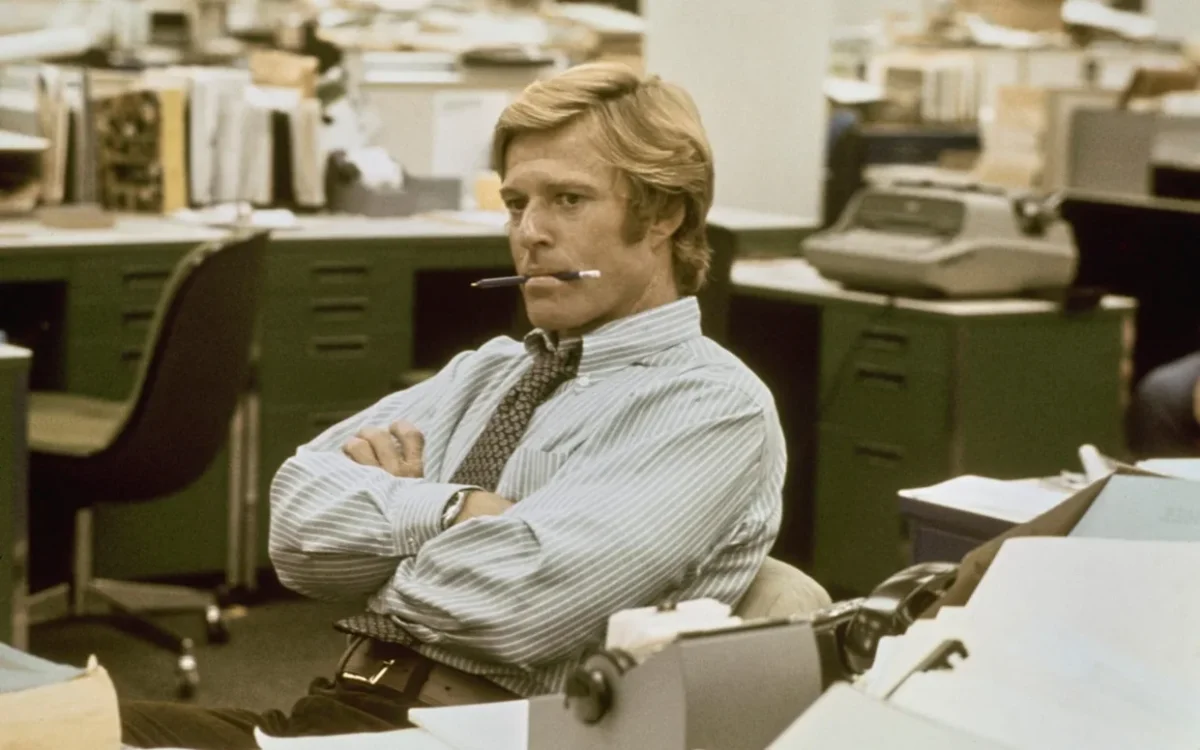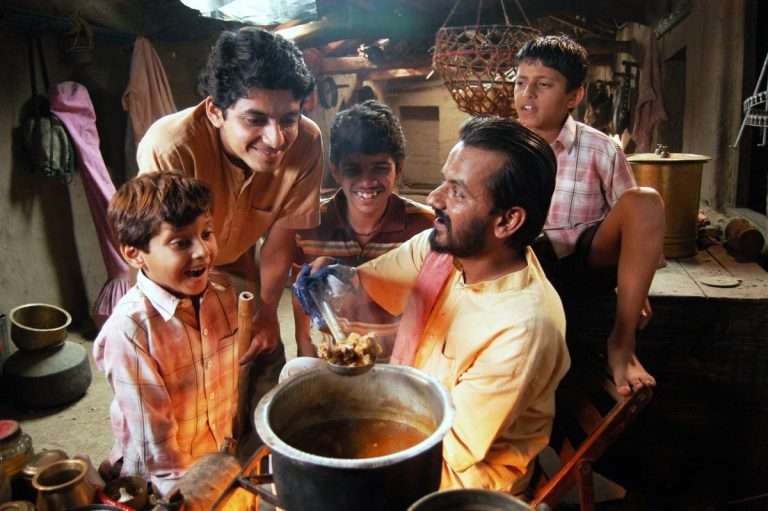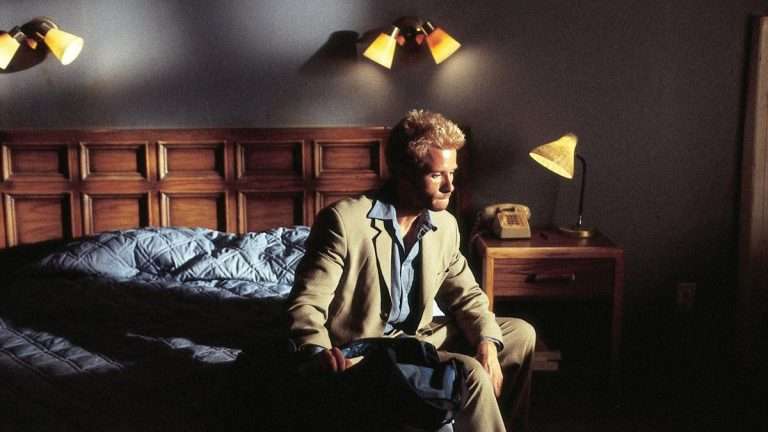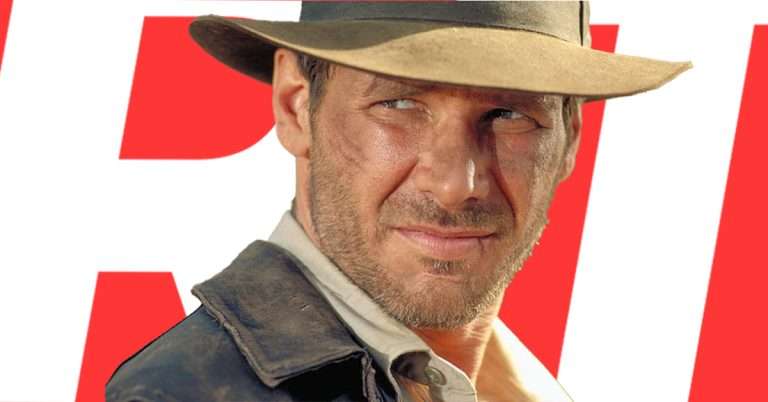Robert Redford was, without question, one of the most important figures within the last century of Hollywood filmmaking. In addition to advancing the industry’s capacity for social and political activism, Redford created a platform for independent filmmakers to share their art with the world, which essentially saved the medium from the crushing mundanity of the studio system. While recognized as an Academy Award-winning director and a charismatic star like no other, Redford’s acting abilities may be slightly undervalued. More than just a pretty voice and an embodiment of integrity, Redford was able to command viewers’ attention, giving depth to characters with strong-willed convictions. Regardless of what style he was working within, Redford rarely uttered a phrase that felt emotionally dishonest.
Like many of his contemporaries, Redford’s interests evolved over the course of his career, as he was given more opportunities to showcase his range. While he first made a name for himself as a dashing young romantic lead, Redford soon found himself in tricky political thrillers that spoke to the fractured state of the nation within the New Hollywood era. Even if Redford represented an “older guard” within the industry, he continued to make interesting choices up until the last stage of his career. Redford also had a unique ability to elevate every film he appeared in, regardless of its quality. While literary critics had more than a few harsh words to say about the 1974 adaptation of “The Great Gatsby,” Redford’s performance as the titular character was note-perfect. Here are the ten greatest Robert Redford movie performances, ranked.
10. The Old Man & The Gun (2018)
Technically, Redford’s final film role was a brief cameo in “Avengers: Endgame” as the secret HYDRA villain Alexander Pierce, a character he had first played in “Captain America: The Winter Soldier.” Beyond the fact that it was a minor appearance that he had shot several years prior, Redford’s work in David Lowery’s charming heist thriller “The Old Man & The Gun” is broadly considered to be his last significant performance. It’s a film so wonderfully delightful in its premise that it needed to be based on a true story to feel plausible. Redford was the ideal choice to play Forest Tucker, a lifelong bank robber who was noted for his charming demeanor and gentlemanly ways.
Watching an old man with Redford’s winning star power befuddle authorities as he continues to stage intricate bank heists is entertaining enough in its own right, but “The Old Man & The Gun” is also a deeply moving contemplation about the extent of someone’s life’s work. Redford adds a reflective, faded sense of whimsy to Forest as he finds love late in life, and later considers the lost connections he’s made along the way.
In many ways, “The Old Man & The Gun” feels like a spiritual successor to the pair of electrifying capers that he made with Paul Newman, who, without a doubt, would have loved watching his old friend operate with such energy in such an unusual role. Even if it’s a film that has significant value for his fans, Redford’s performance is so remarkable in “The Old Man & The Gun” that a novice could view it and understand what the hype was all about.
9. The Electric Horseman (1979)
“The Electric Horseman” marked one of Redford’s best efforts with two of his greatest collaborators. The first is director Sydney Pollack, who directed him in several successful films, including the controversial Best Picture winner “Out of Africa.” “The Electric Horseman” is a bit more adventurous and idiosyncratic than the more tightly wound thrillers that Pollack was best known for, but it has the same layered texture and grounded authenticity that made him such a distinctive filmmaker. It was a genius bit of casting to place Redford in the role of the former rodeo champion Sonny Steele, who has essentially sold out his own legacy in order to become a pathetic brand ambassador. Asking Redford to play a faded icon forced to question the tenets of his legacy was a bold decision, but there was surprising nuance to the notion that he could once again be an underdog.
The other significant collaborator within “The Electric Horseman” was Jane Fonda, who had appeared alongside Redford in the romantic comedy “Barefoot in the Park,” the adventure thriller “The Chase,” and later the family drama “Our Souls at Night.” The brilliance of “The Electric Horseman” is that Redford and Fonda are playing two characters of completely different backgrounds who come to recognize that they share the same values, and might be able to spend a life together. Even if “The Electric Horseman” wasn’t such a clever antidote to the cynicism and disenfranchisement that had swept the American consciousness at the tail end of the ‘70s, the chemistry between Redford and Fonda would be enough to solidify it as a classic.
8. Downhill Racer (1969)
Although it’s often suggested that ‘70s films like “Rocky,” “The Bad News Bears,” “Slap Shot,” and “The Longest Yard” crystalized the “inspirational sports film” formula in a way that inspired countless imitators, “Downhill Racer” crafted a model so perfect that it’s hard for any contemporary efforts to hold up in comparison. Based on the acclaimed novel by Oakley Hill, “Downhill Racer” starred Redford as a cocky young American ski racer who finds himself at odds with his demanding coach (Gene Hackman) as he enters international competitions in Europe. It’s a film about honor, humility, sportsmanship, and courage that speaks to themes larger than any one field of competition. At the same time, Michael Ritchie’s astounding debut film is also one of the most electrifying depictions of a unique sports action ever made, as the practical craftsmanship and sharp editing couldn’t possibly be replicated through digital effects.
It was a testament to Redford’s self-awareness that he was able to play a potentially aggravating character with humanity and could channel feelings of self-doubt and desire that made such an expert competitor still feel relatable. The dynamic he shared with Hackman was truly a gift, as it’s rare to see two performers who could add such personality, depth, and wit to material that worked at such a broad level. There are no handicaps or disclaimers needed to introduce “Downhill Racer” to a younger generation of cinephiles. It’s simply a “lightning in a bottle” work of great entertainment that’s unafraid to be genuinely heartfelt.
7. All is Lost (2013)
Given that Redford was best known for his eloquence and swoon-worthy good looks, it’s very impressive that one of his last major roles was also his greatest physical transformation ever. “All is Lost” cast Redford as a lonesome sailor in the midst of a great storm, channeling allusions to literary classics like “The Old Man and the Sea” and “Moby Dick.”
Although there are a few artistic flourishes here and there that allow director J.C. Chandor to play with some metaphorical imagery, “All is Lost” is as grounded a survival thriller as it can get. Over the course of 105 minutes, Redford fights tooth and nail as the rage of the Ocean crashes against his vehicle. “All is Lost” is so straightforward in its approach that it takes a perceptive viewer to pick up on the subtle notes of defiance, regret, and contentment that Redford exudes within what is surprisingly one of his most complex roles.
Redford has always excelled at playing heroes that were forced to contend against the odds, but “All is Lost” had him facing off against the banality of nature. Although the film doesn’t imply any cruelty within the ways of the world, it does not suggest that there is a miraculous solution on the horizon. It would have taken an actor of Redford’s stature, who had already built up generations of goodwill, to pull off this role with such dignity. To see him make such a radically different choice within the last decade of his filmography is reason enough to understand why he was such an industry outlier.
6. The Sting (1973)
Before directing a Best Picture winner in “Ordinary People” and co-starring in another with “Out of Africa,” Redford and his buddy Paul Newman appeared in another top Oscar winner that was also one of the biggest successes of all time. When adjusted for inflation, “The Sting” was a phenomenon comparable to “Avatar,” “Avengers: Endgame,” or “Titanic.” Part of the reason that it lasted so long in theaters was the experiential element, as “The Sting” seemed to crystallize the magic of an escapist caper with its exhilarating series of twists and turns. While it’s often considered to be a less artistically ambitious Best Picture winner when compared to the other ‘70s films, “The Sting” is the embodiment of what a studio film can look like when it’s firing on all cylinders.
“The Sting” surprisingly earned Redford his only Academy Award nomination for acting, and there’s an argument to be made that the trophy should have been his. While the industry was desperate to award Jack Lemmon’s work in “Save the Tiger” as a representation of his entire body of work, Redford’s ability to conjure imagination and excitement with the subtlest of ticks and expressions is everything that movie stars could ask to be. Even if it’s a two-hander that balances its two larger-than-life stars quite delicately, “The Sting” is ultimately Redford’s film. It’s another film that hasn’t aged a day, as no modern update or contemporary reimagining could hope to replicate the magic of seeing Redford slip into different personas as he pulls off the ultimate con.
Also Read: A Tribute To Robert Redford: An Icon Of Decency, Compassion, and Service Who Offered An Optimistic Future for Hollywood
5. Three Days of the Condor (1975)
“Three Days of the Condor” is one of the many great conspiracy thrillers of the ‘70s that felt like a direct response to the chaos of the previous decade in American politics. In the wake of a series of political assassinations, the Watergate scandal, and subsequent reports about government coverups, Americans had more reason than ever to suspect that they were being watched. It took someone like Redford to play the quintessentially American good guy, who could then discover that he was at odds with a vast and insidious plot to undermine the fundamentals of democracy. Redford is Joe Turner, a deeply intelligent CIA operative who finds himself framed for a murder committed by the deep state.
Three Days of the Condor is both a sharp critique of government’s power to manufacture unquestioned ‘official stories’ and one of Pollack’s most relentlessly propulsive thrillers. Redford once again plays a whipsmart character who uses his adaptive skills to weave in and out of danger, even when his enemies confront him at the most critical moments. It’s a testament to Redford’s star power that he was able to take a film with such loaded themes and still turn it into a masterwork of entertainment. It would certainly be the role that Redford would be best remembered for, as he would return to the political thriller genre later on in his career with “The Company You Keep” and “Captain America: The Winter Soldier.”
4. Jeremiah Johnson (1972)
The best of Redford’s collaborations with Pollack was a deliberate attempt to redefine another quintessentially American genre. Although it was commonly agreed upon that the American western had disappeared in the ‘60s and been replaced by the “spaghetti” films of Sergio Leone and his contemporaries, there was an entire field of revisionist takes on the American frontier that offered a much more grounded, less idealized perspective on what was unambiguously an ugly point in national history. “Jeremiah Johnson” starred Redford as the titular woodsman, who finds himself facing off against ruthless combatants as he fights for survival during the aftermath of the Mexican War.
The notion of a disillusioned former soldier seeking peace and tranquility within nature, only to find himself caught up in another vicious conflict, could be taken to parallel the feelings of disillusionment that had swept through America in the aftermath of the Vietnam War. However, “Jeremiah Johnson” is also a perfect survival thriller that takes advantage of all the dramatic scenarios possible when an isolated protagonist is forced to make their own luck.
It may have been challenging for some of Redford’s contemporaries to believably scrub away their Hollywood charm to get down and dirty, but his commitment to wildlife preservation and admiration of the natural world made him perfectly suited to play a character so in sync with nature. Despite the impressive scope and scale, “Jeremiah Johnson” was still treated as a magnificent work of mainstream entertainment, as it existed within an era in which challenging art was not considered to be confrontational.
3. The Candidate (1972)
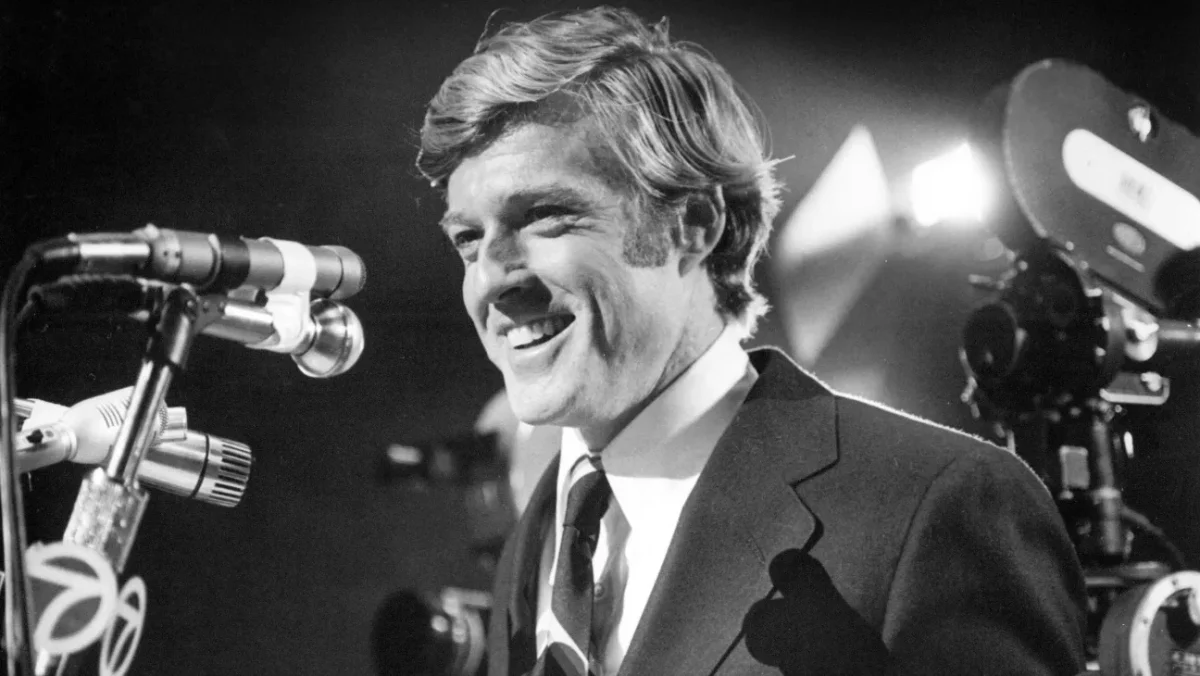
“The Candidate” isn’t just one of the best deployments of Redford’s personal and professional persona, but one of the sharpest films ever made about American politics. Directed by Redford’s “Downhill Racer” collaborator Michael Ritchie and penned by former Democratic National Convention speechwriter Jeremy Larner, “The Candidate” was a multifaceted examination of populism, polarization, and party-oriented stagnation. A political film is rarely able to convey the convenience of such a believable world without feeling like satire, and it’s equally notable that “The Candidate” is able to spread its criticism across both sides of the aisle. While it may have felt like a reactionary yet insightful response to the chaos of ‘70s America, “The Candidate” now feels more insightful than it has ever been before.
Redford gives one of his best performances as Bill McKay, an up-and-coming Democratic candidate who’s given an opportunity to compete in an unwinnable state race against a popular three-term Republican. Given that there’s no feasible chance of him winning, McKay is allowed to speak his own mind without consideration of what the party hawks might say, which surprisingly builds him strong support among frustrated voters. “The Candidate” carefully examines the ramifications of disruptive politics, showing both the merits and drawbacks of tearing down institutions that have no hope of evolving. Redford is not only brilliant when delivering complex lines of political dialogue, but also successful in generating empathy for a character who never expected to be at the center of a revolutionary movement that could reshape the makeup of the entire nation.
2. Butch Cassidy and the Sundance Kid (1969)
“Butch Cassidy and the Sundance Kid” is one of the rare works of blockbuster entertainment that could be described as “perfect.” Similar to other much-loved classics like “Raiders of the Lost Ark,” “The Wizard of Oz,” “Back to the Future,” or “Modern Times,” it’s a film that seems engineered to be as most fun as possible. It was just when the western genre had begun to fade away from the public consciousness that George Roy Hill cast Redford and Newman as a now iconic duo that represented the best of what big screen heroes could be. Even if they were targets of the law and often willing to take more risks than necessary, the titular characters in “Butch Cassidy and the Sundance Kid” were the type of larger-than-life icons whose friendship felt unshakenably pure.
With a script by the brilliant William Goldman, “Butch Cassidy and the Sundance Kid” is remarkable in how well-structured it is. Every scene either drives a character’s arc forward, plants a future plot seed, or reframes what the heist truly signifies. The meticulous planning never weighs down the filmmaking, as Butch Cassidy and the Sundance Kid radiates joy—even its melancholic passages carry an operatic grandeur. Although Redford rarely operated in this zone of maniacally entertaining crowdpleaser in the aftermath, it’s a bit understandable because it would be impossible to top the pure movie magic that “Butch Cassidy and the Sundance Kid” used to become such a classic.
1. All The President’s Men (1976)
“All the President’s Men” is achingly relevant in the nearly half-century since its release, and remains the gold standard of what a journalism film can be. It’s a testament to the boldness of director Alan J. Pakula, Warner Bros., and Redford himself that the film was put into production so closely after the real-life events that it covered had transpired. Not only did all involved feel that setting the record straight about how the Watergate scandal went down was critical to keep the public informed, but “All the President’s Men” sought to examine the important role that reporters played in keeping a balanced democratic society. Although stories of gossip and inflammatory news had been satirized by filmmakers like Billy Wilder and Howard Hawks, Pakula used “All the President’s Men” to show how an independently-sourced organization could enact real change by providing perspective to an ignorant public.
The chemistry between Redford’s version of Bob Woodward and Dustin Hoffman’s Carl Bernstein feels like a more mature, professional alternative to the camaraderie he shared with Newman in “Butch Cassidy and the Sundance Kid” and “The Sting.” Woodward and Bernstein were two men united by their shared principles, and they ended up forming a bond based on the shared risk they took by questioning the establishment of power. Although “All the President’s Men” has become so widely accepted as a work of public service that it has been screened in classrooms, the unadulterated passion and conviction Redford brings to his performance ensures that it’s also a highly rewatchable classic.

